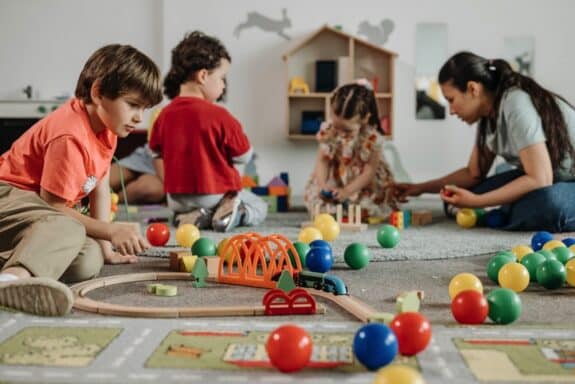A new study suggests that teaching children creative thinking techniques can help them better manage daily stressors. Researchers found that when school-age children learned techniques such as shifting perspectives and imagining “what if” scenarios, they quickly became better problem-solvers. After just a week-long creativity camp or a single lesson, kids showed increased confidence in their ability to face challenges and come up with alternative solutions when needed.
The study, although small, based on 60 kids attending the same summer camp, makes a lot of sense, according to experts. By teaching kids to think flexibly, they are less likely to panic in the face of challenges and more likely to search for alternative solutions, which is known as resilience.
While schools often focus on test scores, rather than life skills, and parents may rush to fix their child’s problems or provide the “correct” solution, it’s important to allow children to solve problems in their own way. The world children face today is different from the one their parents grew up in, and it’s important to teach them to be problem-solvers instead of providing them with the “correct” answers.
The findings, published in the Journal of Creativity, come from two small studies of children at a summer camp in Ohio. In one study, children were divided into groups and taught narrative creativity techniques and perspective switching. In another study, children underwent a 10-hour creativity training program over five days, which included perspective-switching, imagining “what if” scenarios, and thinking about broader goals.
Child psychologist Anand Patel notes that similar tactics are used with children who have anxiety or depression to help them take on a different perspective and get “unstuck.” What’s interesting about this study is that it focuses on healthy kids in their everyday lives, rather than children with specific challenges.
In a world where kids are fixated on devices rather than face-to-face interactions, it is more important than ever to help them develop creative thinking skills. The course taken by the children in this study is similar to one used to build resilience among U.S. Army Special Forces units, showing that creative thinking is a valuable skill for people of all ages.
Related Articles:







